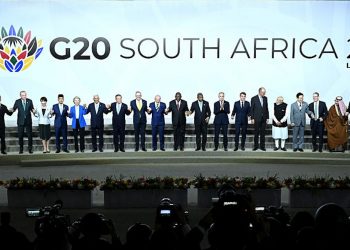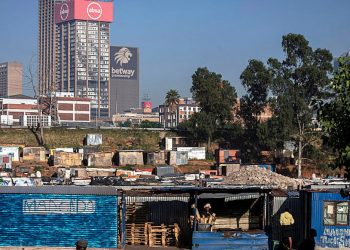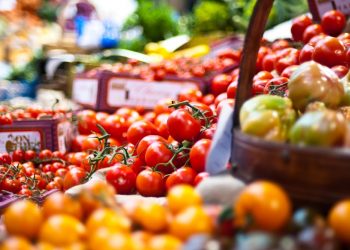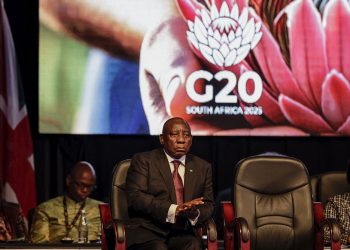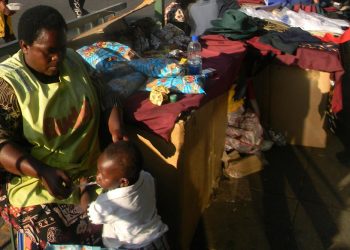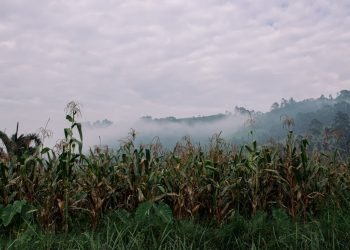The African Growth and Opportunity Act (Agoa) is a landmark piece of trade legislation enacted by the United States in 2000. Its goal is to promote economic growth, development and poverty reduction in sub-Saharan Africa by providing qualifying countries with duty-free access to the US market for over 6,500 products. By eliminating import tariffs and quotas, Agoa aims to stimulate trade, attract foreign investment and foster economic integration between the US and African nations.
Agoa has made strides in boosting exports from eligible African countries to the US. Between 2001 and 2021, the annual value of US imports from Agoa-eligible countries nearly tripled, from US$8.15 billion to US$21.8 billion. The trade preferences have particularly benefited sectors like apparel, textiles, agriculture and light manufacturing. However, Agoa’s impact has been uneven across the region. Some countries have used the opportunities more effectively than others.
As Agoa approaches its 25th anniversary next year, policymakers are considering extending it for a further 16 years. I recently conducted a comprehensive review of scholarly articles and policy reports that analyse the impact of Agoa on the economic performance of sub-Saharan Africa. Below are the four key observations.
1. Some countries have benefited more than others
Agoa’s benefits can’t be measured in just one metric. They reflect in various terms for various countries. But available research indicates that the countries that benefited most from Agoa include South Africa, Kenya, Lesotho, Mauritius, Madagascar, Ethiopia and Ghana.
These nations have used Agoa preferences to substantially increase their exports to the US, particularly in sectors like apparel, textiles and light manufacturing.
Kenya, where apparel-dominated exports to the US have grown from US$55 million in 2001 to US$603 million in 2022, is a shining example of growth in exports. Mauritius exported chocolate and basket-weaving materials. Mali exported buckwheat, travel goods and musical instruments until its 2022 suspension. Mozambique exported sugar, nuts and tobacco. Togo exported wheat, legumes and fruit juices.
Lesotho’s success story is equally inspiring. It has had rapid export growth and job creation in its apparel sector, and this has contributed to new manufacturing jobs.
These success stories underscore the potential of Agoa to drive economic growth and job creation.
2. Some countries have not benefited much
Central and west African countries have not extensively used Agoa’s benefits. They have been held back by weakness in infrastructure, governance and global market integration.
Burundi, the Central African Republic, Equatorial Guinea, Eritrea, The Gambia, Guinea-Bissau and Mali have seen little export growth and foreign direct investment, or no benefits.
3. Reason for the uneven benefits
The variation in Agoa’s impact across sub-Saharan Africa is down to several factors. First, countries with better infrastructure, stable governance and conducive business environments are better positioned to attract foreign investment and increase exports.
Second, the level of economic diversification and export capabilities matters. Countries with more diversified export baskets and established manufacturing sectors have managed to make the most of Agoa’s opportunities.
Third, national policies and strategies to complement Agoa are essential. Countries that put in place policies to improve productivity, integrate value chains and ease supply-side constraints appear to have had success under Agoa. Cultural (historical) connections with the US market may have also provided an advantage for some countries, like Kenya and Lesotho.
4. What the future holds
The US Senate is considering extending Agoa for another 16 years. It is vital to consider the lessons learned from the past 25 years.
Diversify the economy and add value: Many countries still rely heavily on primary commodity exports. This leaves them vulnerable to global price movements and limits their economic development prospects.
Invest in infrastructure: Transport, energy and communication are critical to enhance competitiveness and attract more foreign direct investment. Public-private partnerships and multilateral development financing could help to fill infrastructure gaps.
Promote good governance, political stability and institutional reforms: These create an enabling environment for businesses and investors. It means strengthening legal frameworks, combating corruption and ensuring the rule of law.
Build capacity and develop skills: It should be a priority to enhance human capital and create a skilled workforce that can support the other steps outlined above.
Recognise the diverse economic, political and social contexts in sub-Saharan Africa: Tailored strategies and targeted assistance could work better for individual countries.
As Agoa approaches its 25th anniversary, the potential extension through 2041 presents a strategic opportunity. The sub-Saharan African countries should refine and broaden Agoa’s impact to better serve the diverse needs of the region. By tackling the uneven impacts and focusing on sustainable development goals, Agoa can continue to play a part in the region’s economic transformation. The US and beneficiary countries must work together closely to ensure the benefits are widespread and inclusive.
Bedassa Tadesse does not work for, consult, own shares in or receive funding from any company or organisation that would benefit from this article, and has disclosed no relevant affiliations beyond their academic appointment.


